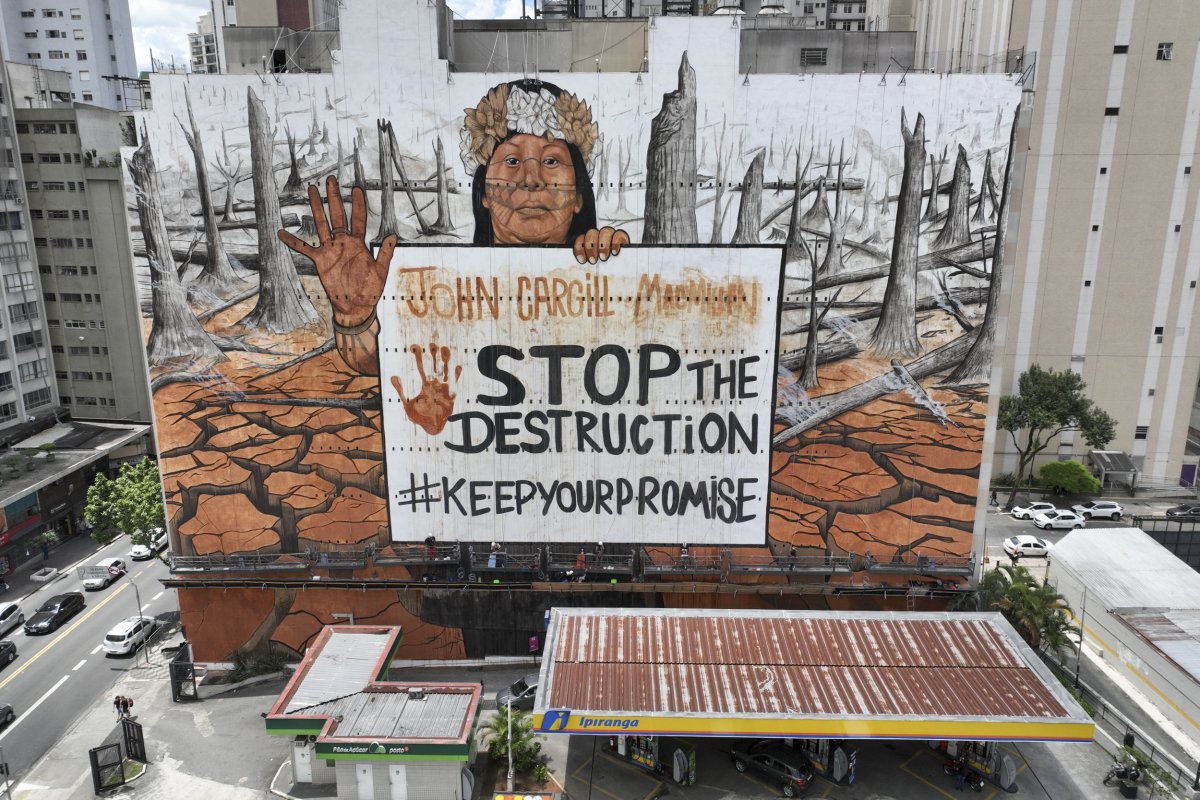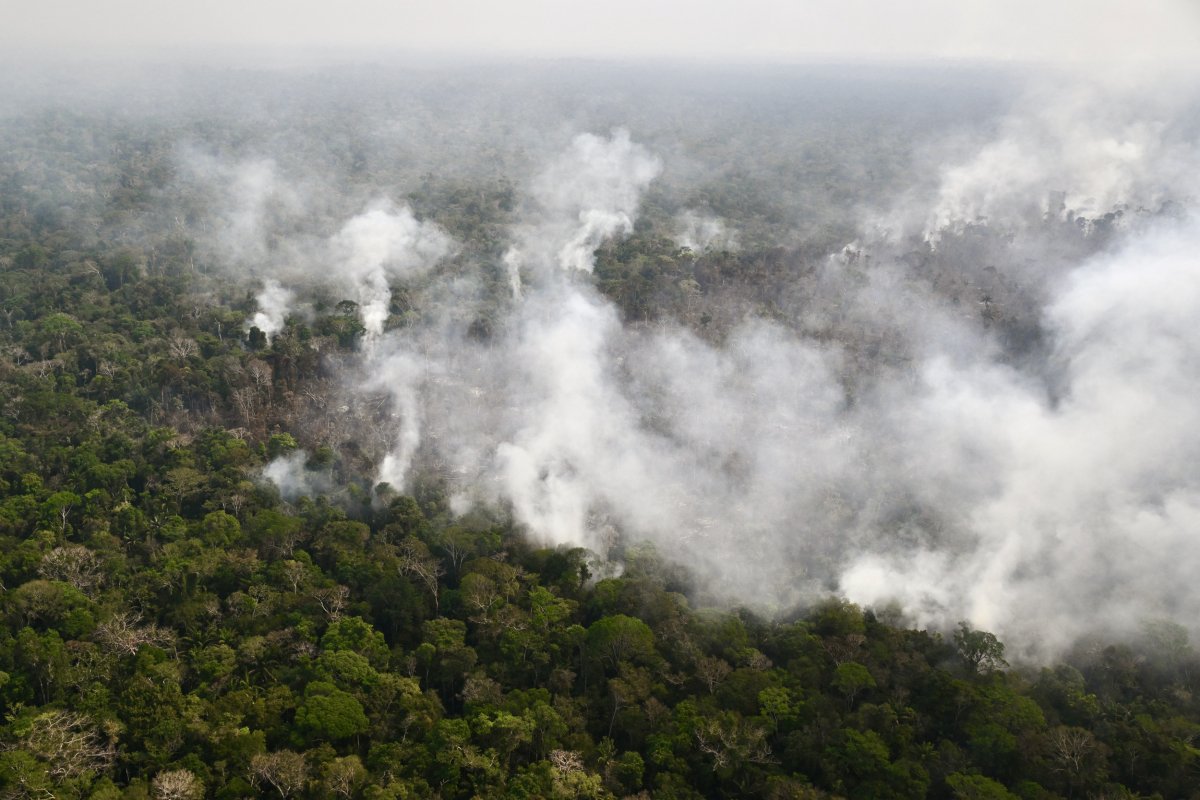Brazilian artist Thiago Mundano has unveiled a monumental street mural in São Paulo, crafted from the very elements that have devastated Brazil—ash from wildfires and mud from floods.
Standing 30 meters (98.4 feet) high and 48 meters (157.5 feet) wide, the mural sends an explicit message about extreme weather events and their causes.
The artwork prominently features Indigenous activist Alessandra Korap, a prominent Indigenous activist from the Munduruku people, a group native to the Amazon region.
Mundano's latest work calls out Cargill, a Minnesota-based agribusiness giant.
It demands they fulfill their pledge to eliminate deforestation from their supply chains in Brazil, Argentina, and Uruguay by 2025.
"We are tired of being a country, a continent where we and the natural resources we have here are exploited," he said in an interview.
"We have to regenerate our planet instead of destroying it."

Indigenous Resistance Against Environmental Destruction
The 38-year-old's self-described "artivism"—combining activism with art—doesn't stop at the mural. He collected materials directly from sites impacted by climate disasters, including ashes from the Amazon, the Pantanal, the Cerrado, and the Atlantic Forest.
Cargill's company's website claims it is working to curb deforestation, but activists like Mundano remain skeptical, given the ongoing environmental damage in Brazil.
His mural depicts a parched Amazon and Korap's powerful message, "Stop the destruction #keepyourpromise".
Korap has played a significant role in organizing Indigenous resistance against environmental destruction.
In 2021, she led a successful campaign to halt mining permits in her homeland, the Sawré Muybu Indigenous Territory, including applications from the multinational mining company Anglo American.
After sustained pressure from Korap and environmental organizations, Anglo American—the fifth largest mining company in the world, according to London Mining Network—withdrew 27 mineral research applications in Indigenous territories.
Worsening Wildfires, Floods, and Droughts
In recent months, wildfires—largely human-caused—have scorched protected areas across the Amazon, the Cerrado savanna, and the Pantanal wetlands.
These fires, combined with severe drought, have created a critical situation.
According to Brazil's disaster warning center, Cemaden, dry conditions are expected to persist in many regions through the end of the month.
This year, the drought has been especially severe.
The depth of the Amazon's Negro River registered 12.46 meters (41 feet) on Tuesday, still significantly lower than the seasonal average. Just 10 days prior, it had recorded its lowest level since measurements began 122 years ago.
In contrast to the dry conditions in the Amazon, earlier this year, "apocalyptic" floods ravaged southern Brazil, particularly in the state of Rio Grande do Sul, where over 180 people died, and 2 million were affected.

'Everything is Connected'
Mundano used mud from these flood-affected regions in his mural, further linking the artwork to the ongoing environmental crises.
"From floods to droughts, everything is connected!" Mundano said in an Instagram post accompanying a video of the mural, his largest work to date.
A representative for Cargill told Newsweek that "the mural is based on a report that is factually inaccurate and the claims within it misrepresent Cargill's work and our supply chains."
The report came from the climate charity Stand.Earth.
Cargill states that of the 18 alleged suppliers Stand.Earth reports are responsible for deforestation across Brazil, two are in its chain, three were blocked for violating its soy policy, and four haven't worked with with company since 2021.
It says the rest were investigated and found compliant with environmental regulations.
"The fact is Cargill accelerated its commitment to eliminate deforestation and land conversion from our direct and indirect supply chains of soy, corn, wheat and cotton in Brazil, Argentina, and Uruguay by 2025. We are on track to deliver on that commitment."
This article includes reporting from The Associated Press



















:quality(85):upscale()/2024/04/24/878/n/3019466/36c5693c662965c5d1ce91.72473705_.jpg)
 English (US) ·
English (US) ·